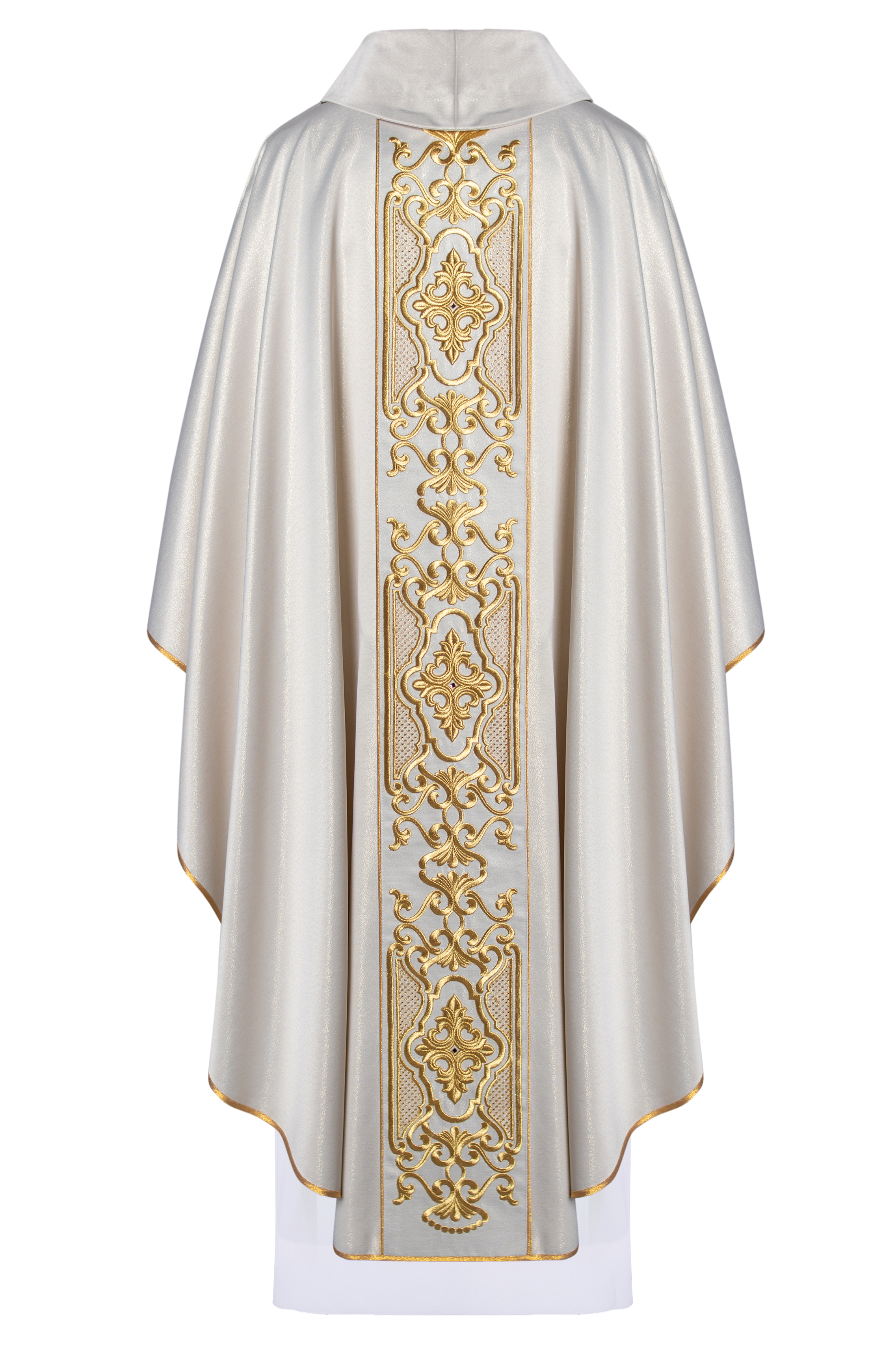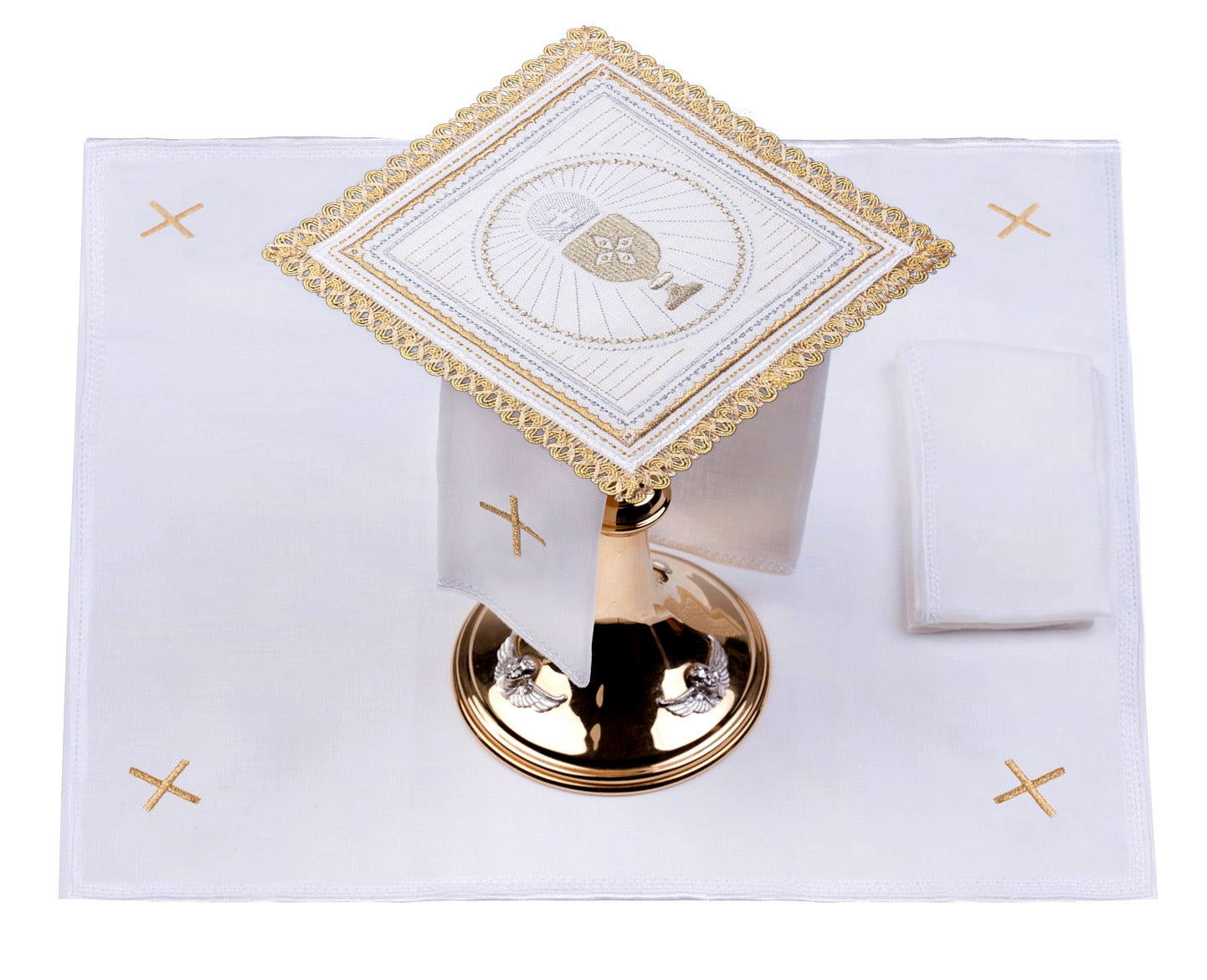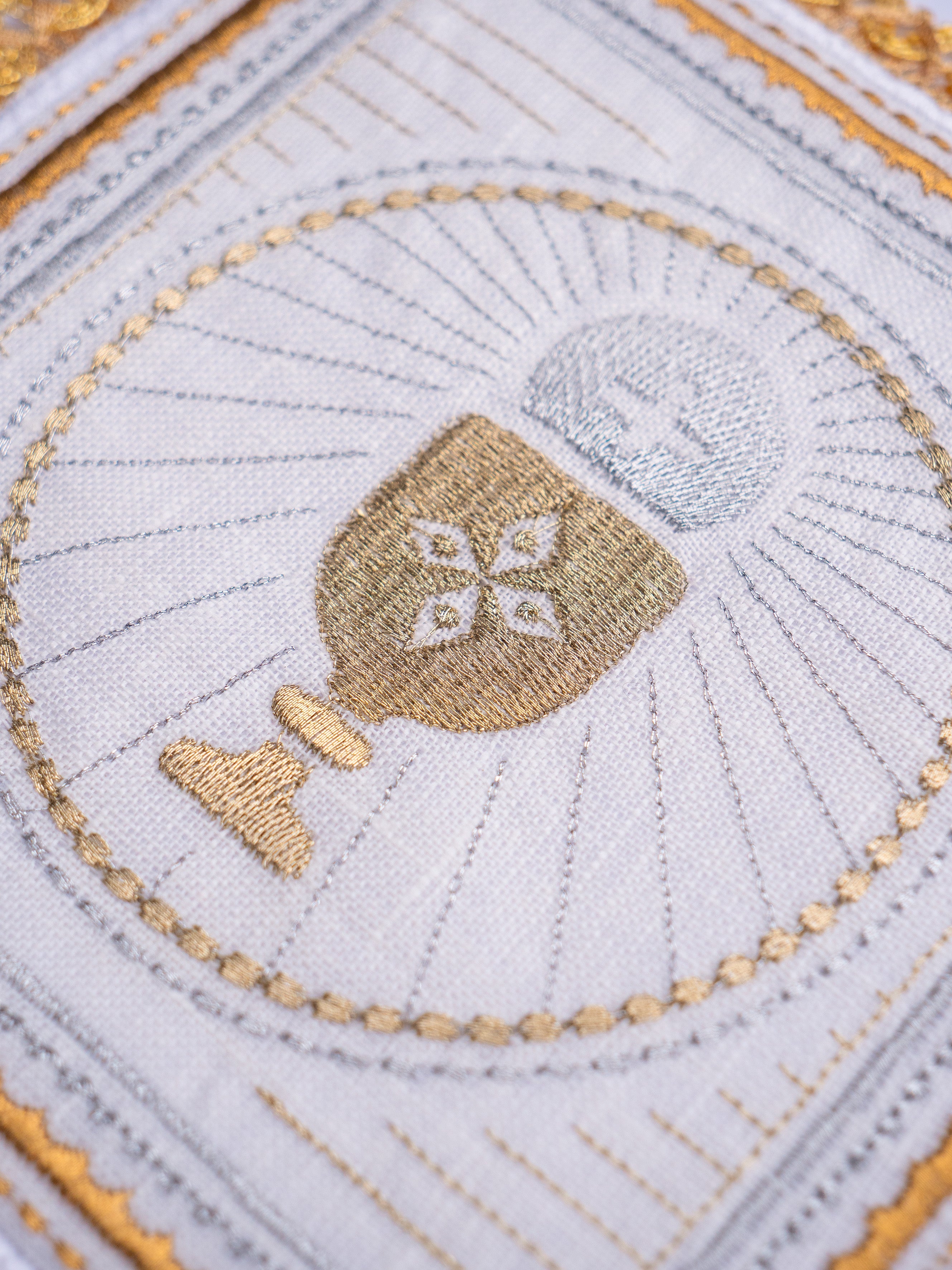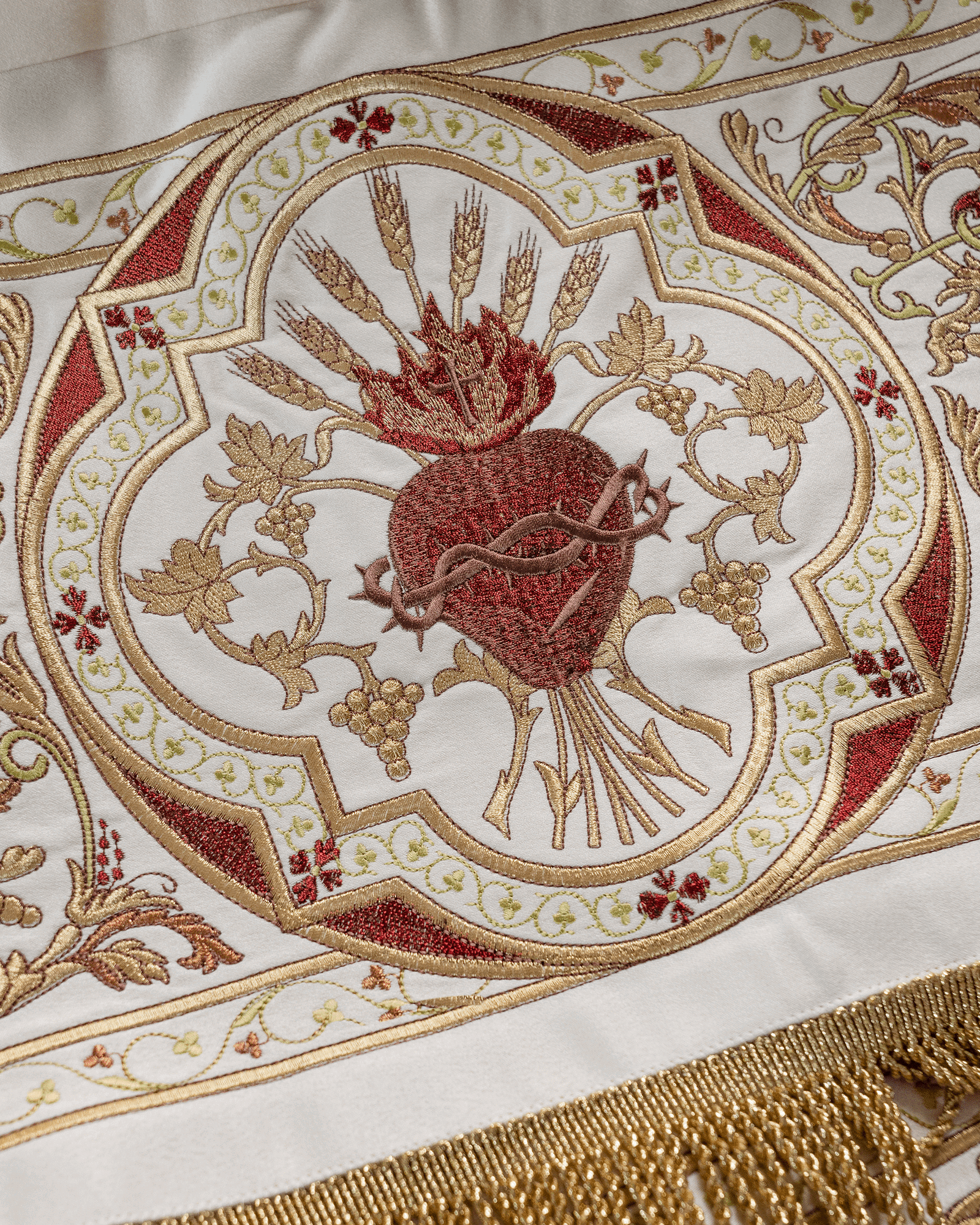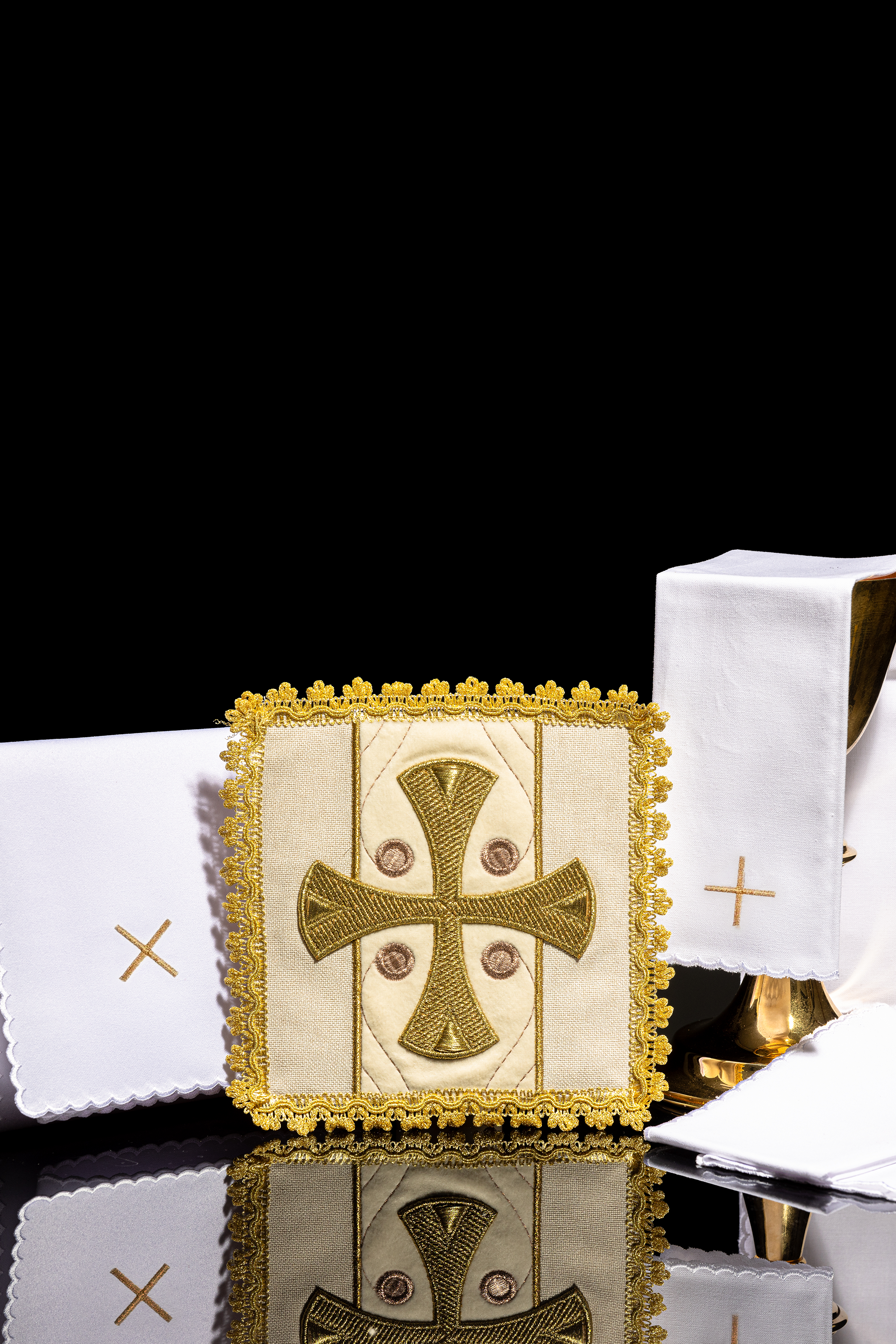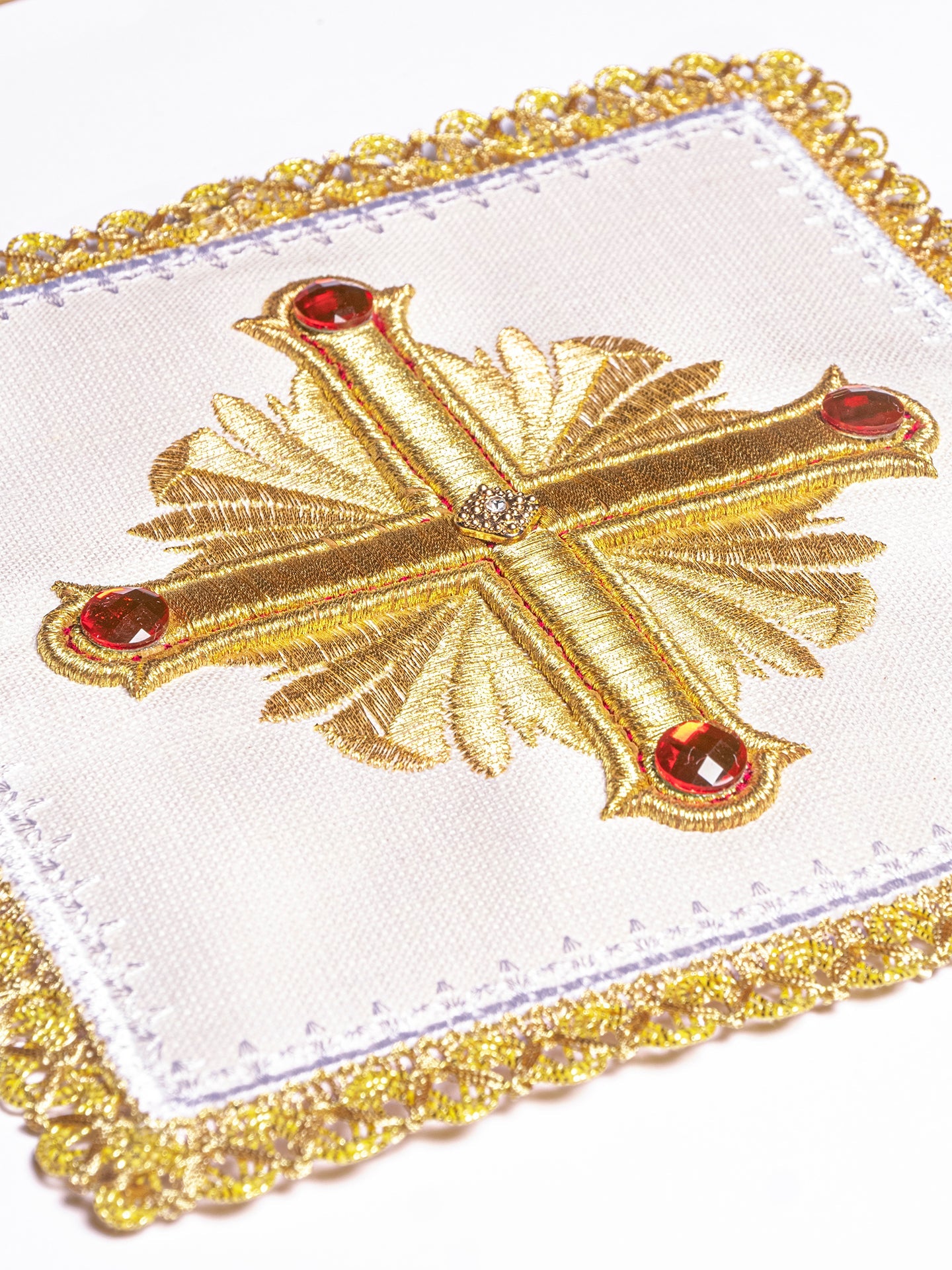Special Collections: Unique Vestments and Liturgical Treasures
Discovering the Rarity of Special Collection Vestments
In the realm of liturgical vestments, the term Special Collections denotes a curated selection of unique, rare, and exceptionally crafted pieces. These are not your everyday vestments rather, they represent the pinnacle of artistry, historical significance, and bespoke design. Special Collections are often sought after by discerning clergy, historical societies, and institutions looking to acquire vestments that stand apart in terms of quality, design, and provenance.
What Defines a Special Collection Vestment?
Several factors contribute to the designation of a vestment as part of a Special Collection:
-
Rarity: Vestments made with rare materials, unique techniques, or limited production runs.
-
Historical Significance: Vestments with a known history, connection to notable figures, or representative of a specific period in liturgical history.
-
Exceptional Craftsmanship: Vestments displaying extraordinary skill in embroidery, weaving, or other forms of textile art.
-
Unique Design: Vestments featuring original designs, unconventional materials, or innovative construction techniques.
-
Bespoke Creation: Vestments custom-made for a specific individual or institution, reflecting their unique needs and preferences.
Exploring the Types of Vestments in Special Collections
Special Collections can encompass a wide range of vestments, each with its own distinct characteristics and significance:
Ornate Chasubles
Chasubles, the outermost vestment worn by priests during Mass, often take center stage in Special Collections. These chasubles may feature intricate gold embroidery, rare silk fabrics, or designs inspired by specific artistic movements. The level of detail and artistry elevates them beyond functional garments to true works of art. Examples include:
- Chasubles embroidered with scenes from the Bible.
- Chasubles made from antique fabrics.
- Chasubles designed by renowned artists.
Detailed Dalmatics
Dalmatics, the vestments worn by deacons, can also be found in Special Collections, showcasing exceptional craftsmanship and design. These dalmatics may feature unique patterns, precious metal threads, or embellishments that reflect the deacon's role in the liturgy. The dalmatic's historical evolution and regional variations make them fascinating additions to any collection.
Elaborate Copes
Copes, large cloaks worn for processions and other liturgical ceremonies, offer ample space for elaborate designs and ornamentation. Special Collection copes may feature extensive embroidery, intricate appliqué work, or unique closures that reflect the garment's historical and symbolic significance. Copes often serve as focal points in liturgical celebrations, making them highly prized pieces.
Stunning Stoles
Stoles, worn by priests and deacons, can also be elevated to Special Collection status through the use of rare materials, intricate embroidery, or unique designs. A stole's design often carries symbolic weight, reflecting the wearer's office and the liturgical season. Special Collection stoles may be passed down through generations, acquiring historical and sentimental value.
Albs and Surplices
While often simpler in design than other vestments, albs and surplices can also be found in Special Collections. These may be made from exceptionally fine linen, feature intricate lace detailing, or bear the marks of historical use. The alb and surplice represent purity and righteousness, and their understated elegance can be particularly appealing to collectors.
The Art of Embroidery in Special Collection Vestments
Embroidery plays a crucial role in enhancing the beauty and significance of Special Collection vestments. Various embroidery techniques are employed to create intricate designs, symbolic motifs, and personalized embellishments.
Goldwork Embroidery
Goldwork embroidery involves the use of gold threads to create shimmering designs that catch the light and draw the eye. This technique is often used to depict religious symbols, heraldic crests, and other important motifs. Goldwork requires specialized skills and materials, making it a hallmark of high-quality vestments.
Silk Embroidery
Silk embroidery utilizes silk threads in a variety of colors and textures to create rich and vibrant designs. Silk's natural sheen and smooth texture lend themselves well to detailed embroidery work, allowing for the creation of intricate patterns and lifelike representations. Silk embroidery adds a touch of luxury and sophistication to vestments.
Appliqué Embroidery
Appliqué embroidery involves attaching pieces of fabric to a background fabric to create a raised design. This technique allows for the creation of bold and graphic designs, as well as the incorporation of different textures and materials. Appliqué is often used to create large-scale motifs and decorative borders.
Materials Used in Special Collection Vestments
The materials used in Special Collection vestments are carefully selected for their quality, durability, and aesthetic appeal. These materials often include:
Silk
Silk is a luxurious and versatile fabric prized for its smooth texture, natural sheen, and ability to hold dyes. It is often used for chasubles, dalmatics, and stoles, as well as for linings and embellishments. Different types of silk, such as damask, brocade, and velvet, offer a range of textures and patterns.
Linen
Linen is a strong and absorbent fabric made from flax fibers. It is often used for albs, surplices, and other undergarments, as well as for altar cloths and linens. Linen's natural breathability and resistance to wear make it an ideal choice for liturgical textiles.
Wool
Wool is a warm and durable fabric made from animal fibers. It is sometimes used for copes and other outer garments, particularly in colder climates. Wool's natural crimp provides insulation and helps to maintain the garment's shape.
Precious Metals
Gold, silver, and other precious metals are often incorporated into Special Collection vestments in the form of threads, beads, and embellishments. These metals add a touch of opulence and reflect the sacred nature of the liturgy. The use of precious metals requires specialized skills and techniques.
Caring for Special Collection Vestments
Proper care is essential to preserve the beauty and integrity of Special Collection vestments. These delicate textiles require specialized cleaning, storage, and handling techniques.
Professional Cleaning
Special Collection vestments should be cleaned by a professional textile conservator or a cleaner specializing in antique and delicate fabrics. Avoid using harsh chemicals or detergents, as these can damage the fibers and dyes. Gentle hand washing may be appropriate for some items, but always consult with a professional first.
Proper Storage
Store Special Collection vestments in a cool, dry, and dark place. Avoid storing them in direct sunlight or in areas with high humidity, as these can cause fading and deterioration. Use acid-free tissue paper to pad the garments and prevent creasing. Consider using a garment bag made from breathable fabric to protect the vestment from dust and pests.
Careful Handling
Handle Special Collection vestments with clean hands and avoid wearing jewelry or accessories that could snag the fabric. Support the weight of the garment evenly when carrying it, and avoid folding or creasing it unnecessarily. Regular inspection and minor repairs can help to prevent further damage.
The Value of Special Collection Vestments
Special Collection vestments hold both intrinsic and extrinsic value. Their intrinsic value lies in their artistic merit, historical significance, and the skill and craftsmanship that went into their creation. Their extrinsic value is determined by market demand, provenance, and condition.
Historical Value
Vestments with a known history or connection to notable figures can command high prices at auction or in private sales. The historical value of a vestment is often enhanced by documentation, such as letters, photographs, or inventories. Vestments that reflect specific periods in liturgical history are also highly sought after.
Artistic Value
Vestments that display exceptional artistry or innovative design are valued for their aesthetic appeal and the skill of the artist or craftsperson. The artistic value of a vestment can be enhanced by its provenance, such as being created by a renowned atelier or designer. Vestments that represent specific artistic movements or styles are also highly prized.
Material Value
The materials used in Special Collection vestments, such as silk, gold, and precious stones, contribute to their overall value. The rarity and quality of these materials can significantly impact the vestment's worth. Vestments made with antique fabrics or rare dyes are particularly valuable.
Where to Find Special Collection Vestments
Special Collection vestments can be found in a variety of places, including:
Auction Houses
Auction houses specializing in religious art and antiques often offer Special Collection vestments for sale. These auctions can be a good place to find rare and unique pieces, but it is important to do your research and inspect the vestments carefully before bidding. Be prepared to pay a premium for high-quality items.
Antique Dealers
Antique dealers specializing in religious items may also carry Special Collection vestments. These dealers often have a good knowledge of the market and can help you find specific items. However, prices may be higher than at auction.
Private Collections
Some private collectors may be willing to sell or loan their Special Collection vestments to museums or other institutions. This can be a good way to acquire rare and unique pieces, but it requires building relationships and establishing trust. Private sales are often discreet and confidential.
Online Marketplaces
Online marketplaces such as eBay and Etsy may also offer Special Collection vestments, but it is important to exercise caution and do your research before buying. Verify the seller's reputation and inspect the vestments carefully before making a purchase. Be aware of the risks of fraud and misrepresentation.
The Enduring Appeal of Special Collection Vestments
Special Collection vestments represent more than just garments they are tangible links to the past, expressions of artistic creativity, and symbols of faith and devotion. Their enduring appeal lies in their ability to inspire awe, evoke emotion, and connect us to the rich traditions of the Church. Whether displayed in a museum, worn during a liturgical celebration, or cherished in a private collection, these vestments serve as reminders of the beauty, mystery, and enduring power of the sacred.
Maintaining the Quality of Liturgical Fabrics
Liturgical fabrics are integral to the beauty and reverence of religious ceremonies. Maintaining their quality ensures they continue to enhance these sacred moments for years to come. Proper maintenance includes regular cleaning, careful storage, and timely repairs. Regular cleaning prevents the buildup of dust and stains that can degrade the fabric over time. Careful storage protects the fabrics from damage caused by sunlight, moisture, and pests. Timely repairs address minor issues before they escalate into major problems, extending the life of the fabric. By investing in the maintenance of liturgical fabrics, religious institutions can preserve their beauty and significance for future generations.
The Symbolism Behind Colors in Ecclesiastical Vestments
Colors in ecclesiastical vestments are rich with symbolism, each representing different aspects of the liturgical year and the Christian faith. For example, white is often used during Easter and Christmas to symbolize purity, joy, and new beginnings. Red is associated with Pentecost, representing the Holy Spirit and the blood of martyrs. Green is used during Ordinary Time to signify hope and growth in the Christian life. Purple is used during Advent and Lent as a sign of penance and preparation. Understanding the symbolism behind these colors enhances the worship experience, adding depth and meaning to each ceremony. The consistent use of these colors helps to create a visual representation of the liturgical calendar, guiding worshippers through the seasons of the Church year.
Custom Embroidery and Personalization Options
Custom embroidery and personalization options offer a way to create unique and meaningful ecclesiastical vestments. These options allow religious leaders to incorporate personal symbols, monograms, or significant dates into their vestments. Custom embroidery can also be used to reflect the specific traditions or charisms of a particular religious order or community. The process typically begins with a consultation to discuss design ideas and fabric choices. Skilled artisans then use advanced embroidery techniques to bring these designs to life, creating vestments that are both beautiful and deeply personal. The ability to customize vestments ensures they are not only functional but also serve as a powerful expression of faith and identity.
Impact of Technology on Vestment Design and Production
Technology has significantly impacted the design and production of vestments, bringing new levels of precision, efficiency, and creativity to the process. Computer-aided design (CAD) software allows designers to create intricate patterns and visualize the final product before it is even made. Computerized embroidery machines can execute complex designs with remarkable accuracy and speed. Digital printing technologies enable the creation of vibrant, detailed images on fabric. These advancements have not only streamlined the production process but also opened up new possibilities for customization and innovation in vestment design. The integration of technology ensures that modern vestments meet the highest standards of quality and artistry, while still honoring the traditions of the past.
The Role of Quality Fabrics in Creating Durable Vestments
The role of quality fabrics in creating durable vestments cannot be overstated. High-quality fabrics are essential for vestments that can withstand the rigors of regular use and maintain their beauty over time. Durable fabrics such as wool, silk, and linen are known for their strength, resilience, and resistance to wear and tear. These materials also offer excellent drape and texture, enhancing the overall appearance of the vestment. Investing in quality fabrics ensures that vestments not only look beautiful but also provide long-lasting value. The choice of fabric should be carefully considered based on the intended use of the vestment, the climate, and the desired level of formality. With the right fabrics, vestments can serve as a lasting symbol of faith and reverence.











